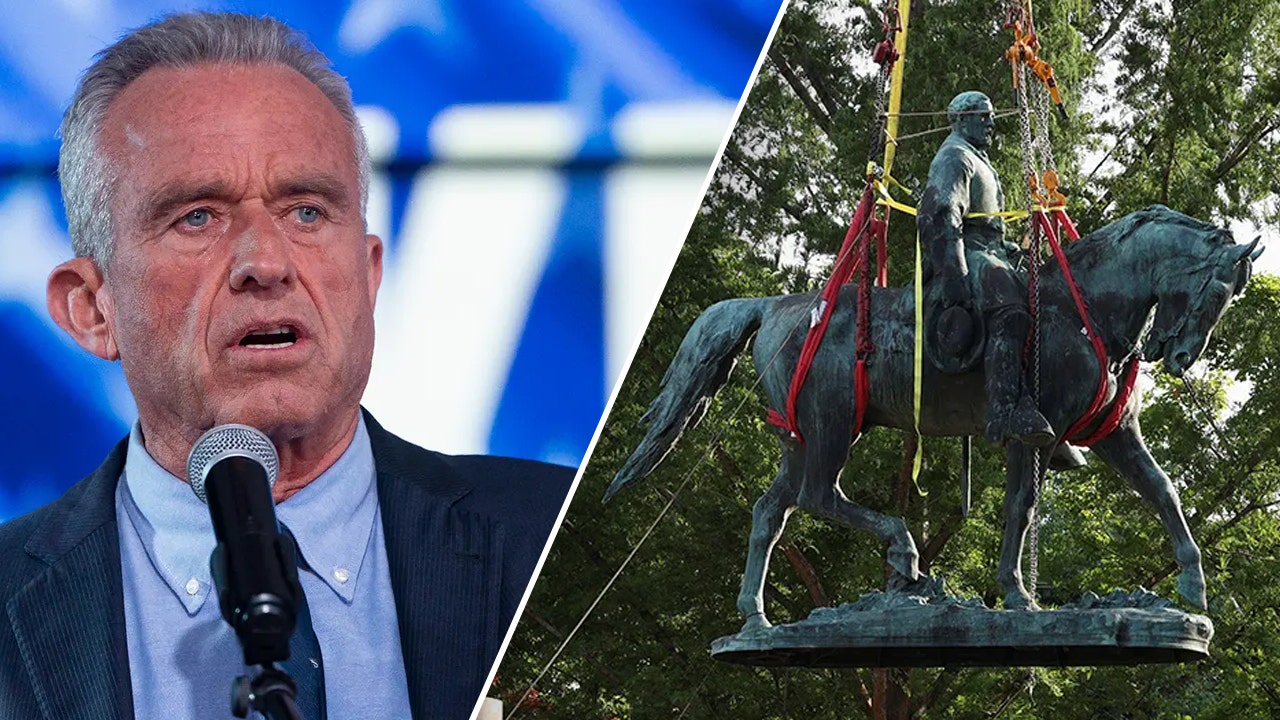Illinois
Illinois hemp businesses owners call for regulation and taxation, not prohibition

The last thing most business owners want is to be taxed and regulated, but hemp business owners are asking for just that — as a way to keep their industry alive.
Hemp entrepreneurs came out Tuesday in favor of a state legislative proposal to license hemp sales, require testing and labeling of their products, prohibit products that look like well-known snack brands, and limit sales to those 21 and over. The bill would create 10% wholesale and a 10% retail sales taxes, and an unlimited number of $500 licenses.
That proposal stands in contrast with a bill backed by the Cannabis Business Association of Illinois, which would prohibit sales of hemp-derived intoxicating products.
Jennifer Weiss, founder and CEO of Cubbington’s Cabinet in Chicago, which sells hemp products, fears that the opposing bill would set such strict limits that it would even prevent sales of non-intoxicating products such as CBD.
“We would have to shut our doors, as well as hundreds of other Illinois companies,” she said. “Let’s not go backward with out-of-touch prohibitions.”
Potentially at stake is the future direction of the cannabis industry in Illinois. Currently, a split between state and federal law has created a stark contrast between the marijuana and hemp industries.
Both marijuana and hemp are grown from the same cannabis plant. State law has legalized marijuana, which gets users high through a component called delta-9-THC. Marijuana remains illegal federally. In 2018, Congress legalized hemp, which is defined as cannabis having less than .3% delta-9-THC, and so was meant to allow sales of non-intoxicating products like CBD.
But hemp processors figured out how to synthetically derive other intoxicating cannabinoids from the plant, such as delta-8 or delta-10, or even delta-9-THC. The CDC issued a health advisory in 2021 warning of adverse events involving consumption and insufficient labelling of delta-8, similar to delta-9 intoxication.
State weed licenses remain very limited and expensive, and are subject to strict testing and labeling requirements, meant to ensure their purity and potency. In contrast, unlicensed hemp is being sold in vape shops, corner stores and gas stations across the country, with no age or other restrictions.
As a result, sales of hemp products have exploded into a $28 billion industry, even larger than the legal cannabis market, by one estimate. The recent move by federal regulators to relax restrictions on cannabis would not likely affect the hemp THC conundrum. As a result, some licensed cannabis businesses have even resorted to selling hemp-based products.
Last month, some lawmakers and the Cannabis Business Association of Illinois, which represents the licensed cannabis industry, called for a ban on intoxicating hemp products until an advisory committee can recommend how to proceed.
Tiffany Chappell Ingram, the association’s executive director, issued a statement again calling for a “pause” of hemp intoxicant sales pending further studies.
“We look forward to working with legislators to find a path forward that empowers consumers, protects minors and ensures the state’s adult-use cannabis law lives up to its full promise, including uplifting social equity license holders and communities disproportionately impacted by the war on drugs,” she said.
State Rep. La Shawn Ford, a Chicago Democrat and chief sponsor of the bill to regulate hemp, said lawmakers shouldn’t kill a multi-billion dollar industry, and create an illegal market.
“Prohibition doesn’t work, and Illinois should reject going backward,” he said.
John Murray, CEO of Sustainable Innovations in Rockford, said his company is using its larger hemp business to help finance its licensed cannabis venture.
While licensed dispensary owners could be undercut by hemp businesses, they could operate in both spheres, he said.
“We believe we can do both, and we are doing both,” he said.

Illinois
House Democrats expected to vote on $53.1B budget as Republicans complains of overspending
SPRINGFIELD, Ill. (AP) — The Illinois House geared up Tuesday night to vote on a $53.1 billion state budget but planned to work into Wednesday to get the job done.
Legislative leaders expected that the House would adopt the plan which the Senate OK’d Sunday night. It’s $400 million more than Democratic Gov. J.B. Pritzker proposed in February and raises taxes and makes other tax code changes to generate $1.2 billion to fund it.
“This budget is balanced, responsible and fair,” House Speaker Pro Tempore Jehan Gordon-Booth, a Peoria Democrat, told the Executive Committee. “It invests in children, it invests in infrastructure, it also invests in our most vulnerable.”
Even though the Legislature has gone beyond its self-imposed adjournment deadline of May 24, lawmakers don’t expect conclusion until early Wednesday because of constitutional requirements on the number of days that legislation must be read publicly.
Republicans complained that Democrats, who control the Legislature, are spending beyond their means and not preparing for what many predict are lean years ahead. Deputy House Republican Leader Norine Hammond of Macomb said she found at least $1 billion in spending that would be pushed off to the following fiscal year.
There’s a $350 million increase for elementary and secondary education, as prescribed by a 2017 school-funding overhaul, but a reduction from what was requested by the state education board in federally mandated school operations. The budget puts an additional $75 million for early childhood education, meaning 5,000 more seats, Gordon-Booth said.
The proposal to provide $182 million to fund services for tens of thousands of migrants seeking asylum in the U.S., largely bused from Texas, where they cross the border. And it provides $440 million for health care for noncitizens.
It also pays the state’s full obligation to its woefully underfunded pension funds and chips in an additional $198 million to the so-called rainy day fund to for an economic downturn.
Gordon-Booth said the proposal is just 1.6% more than what will be spent this year. Rep. C.D. Davidsmeyer, a Jacksonville Republican, noted that the budget is now $20 billion more than a decade ago. He criticized the transfer of dedicated funds, such as $150 million from the road fund and $50 million from a fund to clean up leaking underground storage tanks to shore up public transit.
“I have a concerns that there are gimmicks in this budget that put us on a path to a giant collision in the future,” Davidsmeyer told Gordon-Booth. “I hope I don’t have to say, ‘I told you so’ when it happens.”
The business tax hikes in particular pushed the General Assembly past its adjournment deadline as lobbyists scrambled to limit the impact. But the spending plan raises $526 million by extending a cap on tax-deductible business losses at $500,000. There’s also a cap of $1,000 per month on the amount retail stores may keep for their expenses in holding back state sale taxes. That would bring in about $101 million.
And there would be $235 million more from increased sports wagering taxes and on video gambling. Pritzker wanted the tax, paid by casino sportsbooks, to jump from 15% to 35%, but it was set on a sliding scale from 20% to 40%.
Another Pritzker victory comes in the form of the elimination of the 1% tax on groceries, another of the governor’s inflation-fighting proposals. But because the tax directly benefits local communities, the budget plan would allow any municipality to create its own grocery tax up to 1% without state oversight.
And those with home-rule authority — generally, any city or county with a population exceeding $25,000, would be authorized to implement a sales tax up to 1% without submitting the question to voters for approval.
Illinois
Top seed Illinois falls to Georgia Tech in quarterfinals of NCAA men’s golf championships

Another trip to match play in the NCAA men’s golf championships ended short of a national title for Illinois.
Coach Mike Small’s Illini — who earned the No. 1 seed by finishing 16 shots clear of the field after 72 holes of stroke play — lost 3-1 to eighth-seeded Georgia Tech in a quarterfinal match Tuesday morning in Carlsbad, Calif.
Max Herendeen, who tied for second Monday in the individual competition, was the only Illinois player to win his match, recording the day’s first point with a 5-and-4 rout of Carson Kim.
But the Yellow Jackets clinched the match with wins by Bartley Forrester over Tyler Goecke (3 and 1), Aidan Tran over Piercen Hunt (3 and 2) and NCAA individual champion Hiroshi Tai over Ryan Voois (3 and 2). That rendered Jackson Buchanan’s match against Georgia Tech’s Kale Fontenot moot.
“For whatever reason we lost our way and started guiding it and started worrying about things,” Small said in a press release. “I think a lot of our guys fell back on some of the tendencies that they were getting better at all spring, and I think under the pressure and tension they reverted back to some of that stuff.
“We were in control of the match halfway through and the back nine is one we took care of all week, so maybe the pressure got to them and maybe they got ahead of themselves and were thinking of the outcome for whatever reason.”
This was Illinois’ ninth time qualifying for match play since the current format was adopted in 2009, and the Illini have made the NCAA championships 17 times and won 13 Big Ten titles in Small’s 25 years in charge. But they still are seeking the program’s first national championship.
Georgia Tech moved on to a semifinal match later Tuesday against No. 5 seed Florida State, a 3-1 winner over fourth-seeded North Carolina.
No. 6 seed Auburn faced No. 7 Ohio State in the other semifinal as all four quarterfinals were won by the lower seed. The Tigers beat third-seeded Virginia 3-1, while the Buckeyes advanced with a 3-1-1 victory over second-seeded Vanderbilt.
The championship match is Wednesday at La Costa (6 p.m. CDT, Golf Channel).
Illinois
Oldest Farmers Market In Illinois To Reopen For 113th Season

AURORA, IL — The Aurora Farmers Market, said to be the oldest in the state, will reopen June 1 for its 113th season.
New vendors will join dozens of returning farmers and fan favorites from 8 a.m. to noon every Saturday at Water Street Square, 65 S. Water St., across from City Hall. The season will run through Oct. 5.
To mark the new season, the city will hold a ribbon-cutting ceremony at 9 a.m. Saturday. The inaugural market day will also feature entertainment for children from Miss Jaime from the Farm at 10 a.m., live music from Nick Scarpinato, and a petting zoo courtesy of Phillips Park Zoo, officials said.
Similar to years past, the Aurora Farmers Market is partnering with Link Up Illinois and Ascension Mercy’s Fresh First Program. The partnerships, respectively, double the value of Link/EBT purchases and provide vouchers for children on select days throughout the season.
-

 Movie Reviews1 week ago
Movie Reviews1 week ago‘The Substance’ Review: An Excellent Demi Moore Helps Sustain Coralie Fargeat’s Stylish but Redundant Body Horror
-

 Movie Reviews1 week ago
Movie Reviews1 week ago‘Rumours’ Review: Cate Blanchett and Alicia Vikander Play Clueless World Leaders in Guy Maddin’s Very Funny, Truly Silly Dark Comedy
-

 Culture1 week ago
Culture1 week agoFrom Dairy Daddies to Trash Pandas: How branding creates fans for lower-league baseball teams
-

 News1 week ago
News1 week agoVideo: A Student Protester Facing Disciplinary Action Has ‘No Regrets’
-

 World1 week ago
World1 week agoPanic in Bishkek: Why were Pakistani students attacked in Kyrgyzstan?
-

 Politics1 week ago
Politics1 week agoAnti-Israel agitators interrupt Blinken Senate testimony, hauled out by Capitol police
-

 Politics1 week ago
Politics1 week agoMichael Cohen swore he had nothing derogatory on Trump, his ex-lawyer says – another lie – as testimony ends
-

 News1 week ago
News1 week agoCity of Kyle falls short of ‘Kyle’ world record














